To paraphrase Leo Tolstoy, “each unhappy person is unhappy in their own way.” That idea is one of the reasons I appreciate Unwording, the latest game from Frostwood Interactive. It’s a new entry to the pool of games that offer explicit explorations of mental health. Unwording’s big trick is to analogize the mental health journey through gentle puzzles and visual perspectives, and the way it goes about it really hits home for me.
We meet Tom in the midst of a negative thought spiral. As far as we can tell, it’s an ordinary day. What that means for Tom, though, is that even getting out of bed is a struggle. The prompt to “Wake up” introduces the nifty block-turning mini-game where you have to work out how he interprets what he sees and has to do. Wake up or give up? The prompt leads to a thought. Those thoughts carry him through a world that seems to conspire to remind him that he’s poor and alone and miserable.
So many — too many — of us have been there. It’s those days where a snappy bit of customer service makes you wonder what you said wrong. Where an odd look from a colleague makes you want to hide in a corner. Where making it through the day is rewarded by curling up on the shower floor. When I describe my experience of depression, I default to an endless field mired in a thick blanket of fog. It feels like wandering without a destination, without really knowing which way is up or whether that shadow protruding from the gray is a helping hand or a root to trip me up. That’s my allegory. Unwording has a different one.
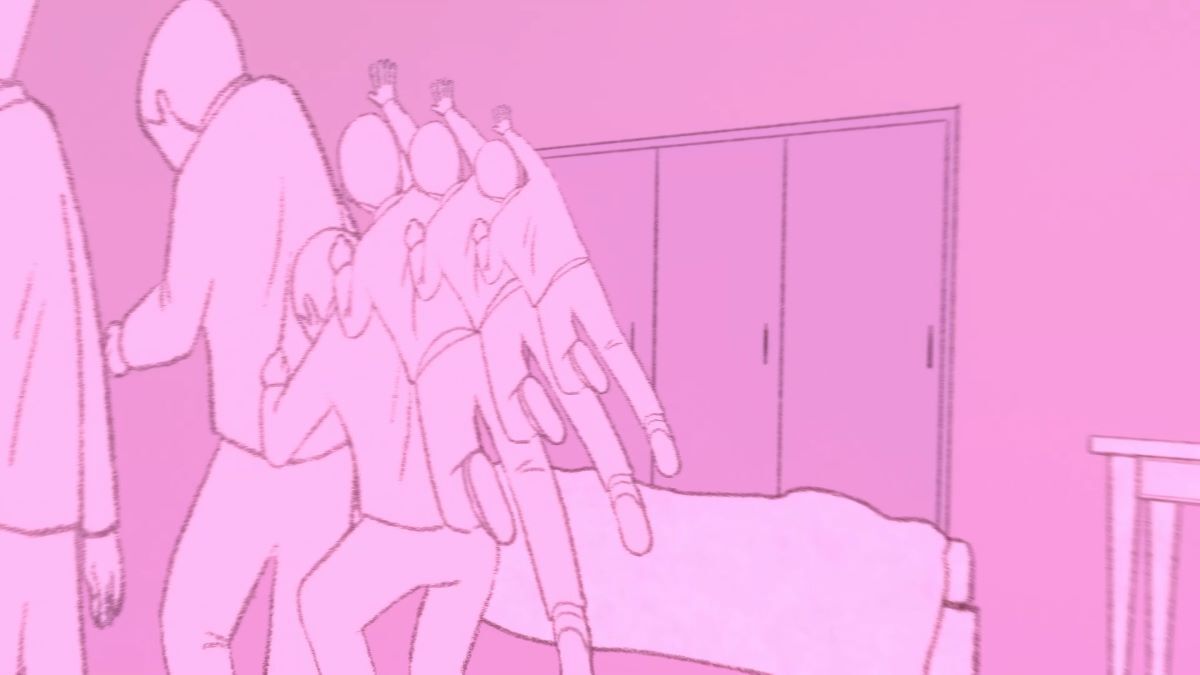
In the opening phase, events take place across a 2D plane, the world cast in maudlin purple hues. Walk left, walk right, look at points of interest. If my impression of mental illness is about feeling lost, then Frostwood’s is about feeling limited. Tom follows the patterns that he feels life has set out for him, patterns that put him in contact with stimuli that only serve to reinforce his negative cognitions. And that idea of limitation becomes a motif, but I’ll get to that shortly.
The exposition of Tom’s context comes to an abrupt end when a brilliant yellow bird forces its way into his life. The creature is a splash of sunlit color in a gloomy world — both literally and metaphorically within the story of Unwording. Its presence attracts the eye. The bird also acts in the tropey way of being a thing that forces Tom to face his reality. It wreaks a cozy kind of havoc in the apartment by shitting everywhere, which — understandably — upsets Tom.
The thing is — “upset” is a word with multiple meanings, making it an apt descriptor for a game where what you see isn’t necessarily what is meant. The obvious interpretation is distress, and that is accurate. How could it not be? This mischievous bird is another source of frustration. The other interpretation is disruption. As the creature waggles its tail feathers above his phone screen, Tom’s world shifts.
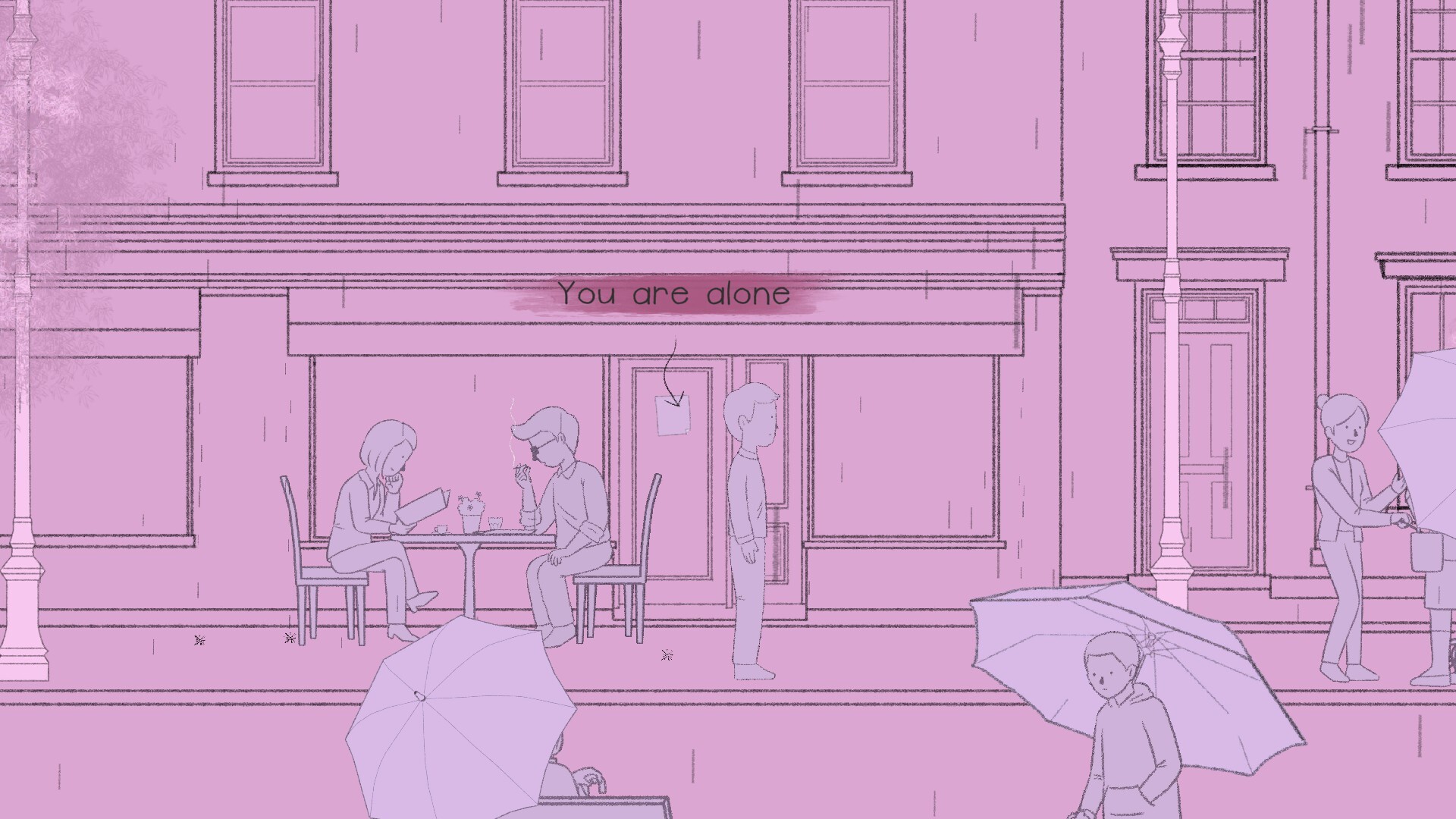
That Frostwood has chosen the mobile phone as an inflection point is curious. In the real world, multiple studies have explored their effect on our social existence, with many suggesting a negative impact on things like concentration, cognition, and anxiety. In the fiction, it’s established that the device is one of the factors contributing to Tom’s mood. It’s a shorthand for all those stimuli and stressors.
And the moment is a fight-flight-freeze situation that leads to a memorable, Matrix-esque sequence that changes everything. The flat plane of Tom’s existence multiplies.
That image is so evocative.
It’s a literal expression of the game’s theme that, to break negative thought patterns, you have to shift your perspective. As a side note, I don’t fully buy the message; there’s some truth in it, but it’s an oversimplified cliché. If overcoming negative thought patterns were that easy, we wouldn’t have a global mental health crisis that some have called an epidemic and even a pandemic. That said, the game doesn’t position overcoming negativity as being that simple. Tom isn’t suddenly “better” for the break.
When the story resumes, Tom exists in a 2.5D world. Despite the shift, the metaphor of limitation remains potent, mostly through the constrained movement, but also through the iconography. While he can move on a 3D plane in parts of his apartment, we look on him through the windows, their grilles resembling nothing so much as prison bars.
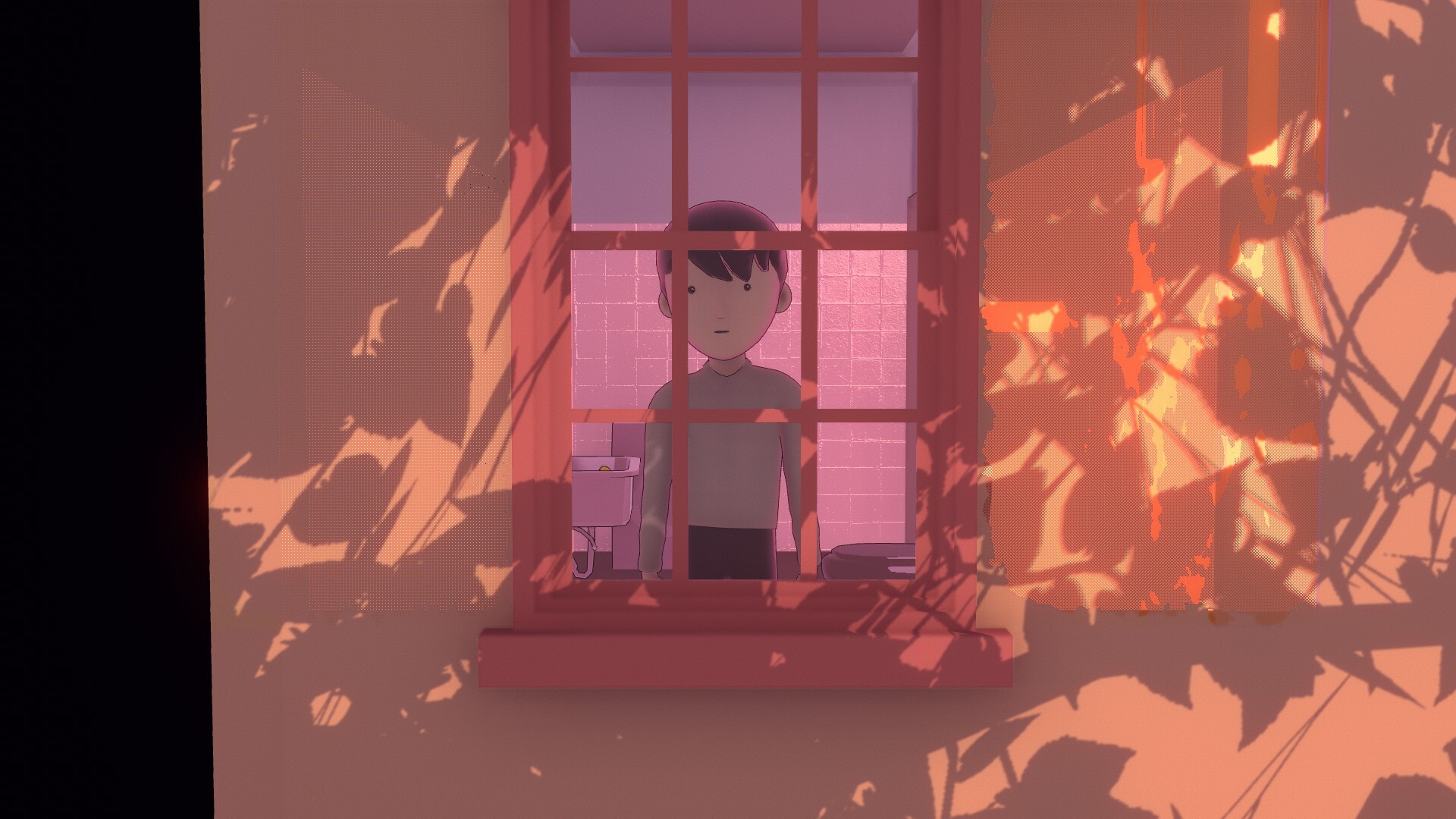
Nevertheless, the second section is more optimistic. We see Tom reconfiguring his perceptions. The things that once seemed so dark and intimidating now offer sprigs of hope. Impossibilities become maybes. Anxiety is papered over by the realization of reality.
Yes, it’s reductive, and no, it doesn’t feel fully earned, but Tom isn’t a character. He’s not Senua from Hellblade or Kay from Sea of Solitude. He’s a cipher. He is a lonely office worker: That’s all you need to know about him because he is a stand-in for anyone who has ever struggled with their mental health.
Then comes a second crisis, a second fight-flight-freeze situation that forces action. As in Alan Wake, objects break down into their signifiers, the letters that make up those words drifting unmoored. Again, the imagery is fantastic, reflecting a different way of seeing the world. This time, it’s about the breaking of routine, acknowledging that there are possibilities beyond those that we limit ourselves to.
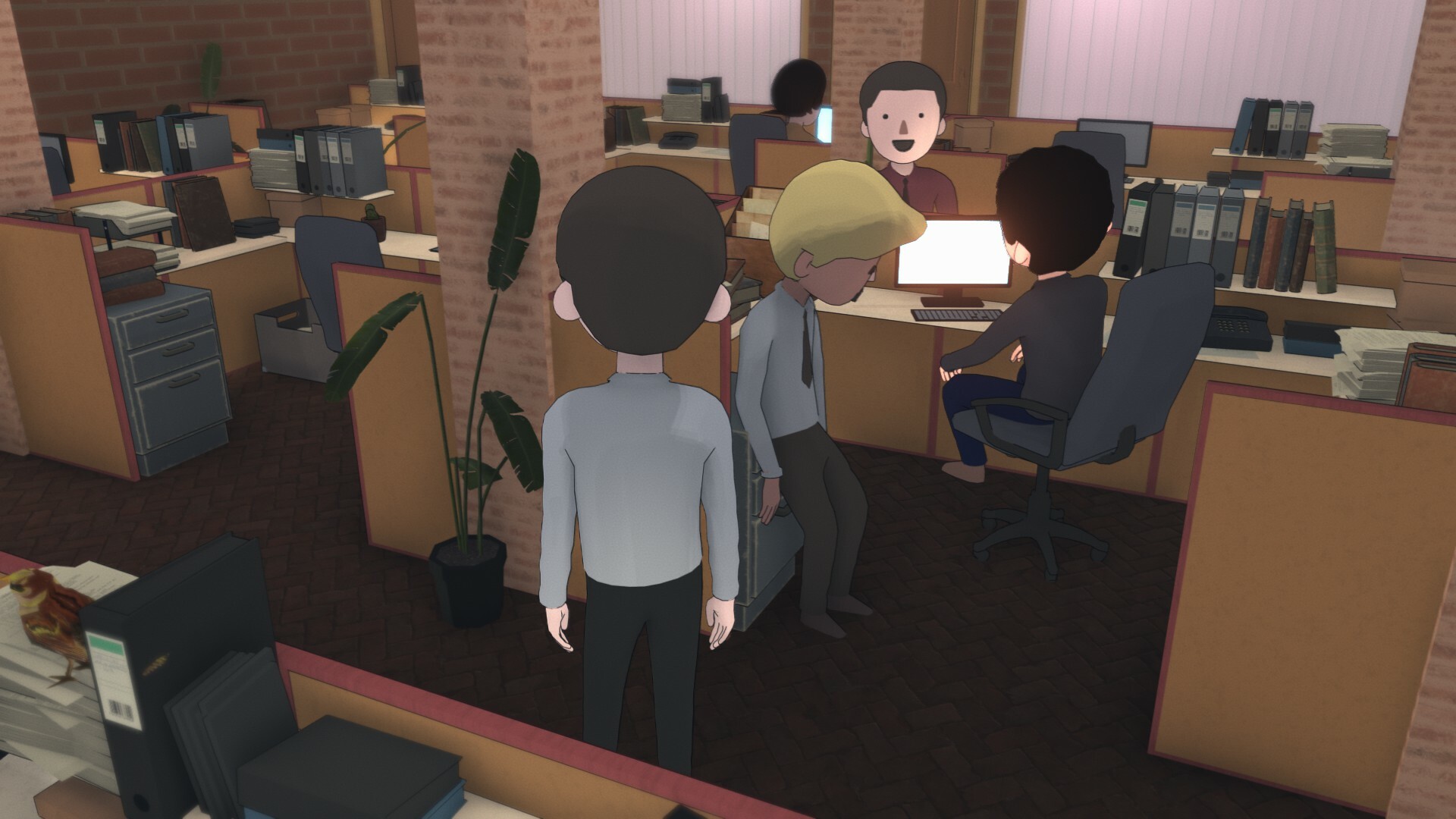
That sense of self-control manifests in the fully 3D world and the shift from word puzzles to a text parser. In a year that’s seen remakes of Colossal Cave Adventure and The Portopia Serial Murder Case rethink the old-school text parser because of its limitations, it’s interesting to see it used in Unwording as an expression of freedom. And even if the right verbs can be obscure, it’s effective because it takes you outside of Tom’s head. It’s about his actions rather than his thoughts, and it leads to a wonderful final moment of release, as the oppressiveness of constrained gameplay from the last hour or so bleeds away.
I liken it to decompression. At the end of Unwording, I don’t feel like I’ve learned new strategies to deal with depression or a better way to talk about it. But I do know the game will stick with me. Unwording is a personal expression of being, with the specific goal of eliciting empathy. It wants us to know how someone else might see the world. While it’s not going to solve the problems that plague modern society, it’s a worthwhile addition to the conversation around mental health. It makes us party to negativity, but it refuses to wallow in the suffering that it’s forced us to cause. Instead, it inspires us to take a more optimistic view, and sometimes that’s all that’s needed.

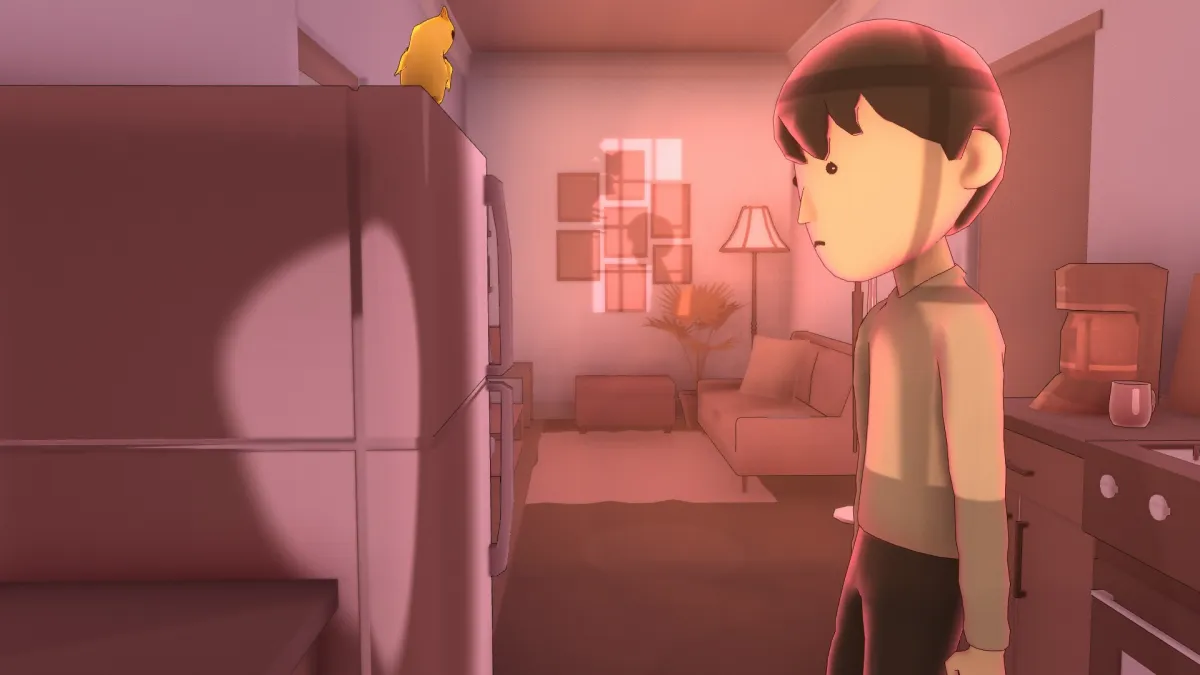




Published: May 10, 2023 01:00 pm